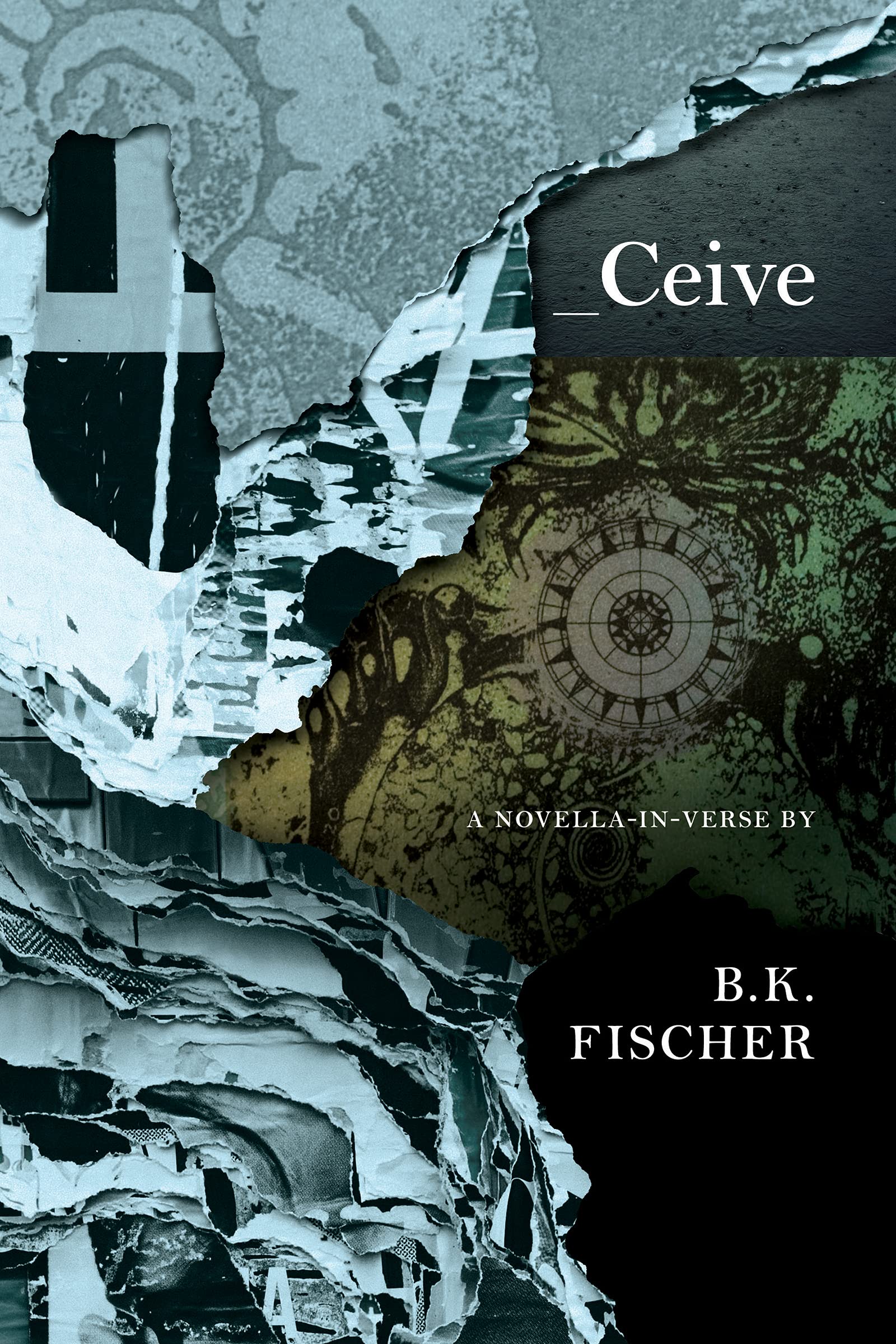Ceive by B.K. Fischer (BOA)
Ceive is first-rate science fiction. Ceive is a book-length story, a novella in verse. Ceive is absolutely contemporary, a way of thinking about the near future and the far future, a stab at a try at a take on the climate catastrophe that is coming to all our towns soon. Ceive is Noah’s Ark on a container ship, repurposed to re-found human civilization on new grounds in the far north, with a passenger manifest of misfits, a deeply neuroatypical teen called Crispin for navigator, our protagonist Val for his caretaker, and Roy the UPS guy as her would-be savior. Ceive is suspenseful, on occasion sexy, unpredictable, elegant, and (without giving up or giving in) sad.
It’s also a poem that—like all poems worth the name—lives line by line. “Count containers/ to find your way back, because nouns can be/ mass or count and some can be either–/ sin, a sin, crime, a crime, death, a death.” [29] Val thinks she’s lost her daughter, and she may be right. Like all of us, she’s headed into a future no one can know, a time when “all your beads slide off your string.” [87] What can she carry? Who, if anyone, can she save? Does gender matter? Do hierarchies only and always reproduce their bad selves? Does each ship need a captain? Do we?
When she’s not pursuing the future of the Earth—and sometimes when she is—Fischer builds in plays on words, including the words and semi-words that give her section titles: ceive as in conceive (a child), incipient, receive (along with prose poems whose titles are geolocations). She also incorporates references, quotations, research points, into Val’s shore-to-ship-to-maybe-shore story: Wallace Stevens, Helene Cixous, the eco-philosopher Timothy Morton and various science-climate journalists such as Elizabeth Kolbert appear, unobtrusively. Fischer knows her stuff. And her stuff is the stuff on which human plans, and wishes, and disappointments are made: the material out of which readers might find a way to think about oncoming destruction, and—like Val, if she’s lucky; like Crispin; like the Mary Ellen Carter—rise again.



